The second Regional Workshop of the HOSPEEM–EPSU joint project “Strengthening Social Dialogue in the Hospital Sector in the East, South and Central Europe”, took place on 15 November 2019 in Rome, Italy. The workshop was organised by ARAN (HOSPEEM member, Italy) and co-organised by HOSPEEM.
The geographical focus of this second workshop is on Southern Europe, specifically targeted at Cyprus, Greece, Italy, Malta, Portugal and Spain. The event aimed to gather EPSU affiliates and HOSPEEM members as well as representatives from trade unions and employers from the six targeted countries and from beyond as well as academia. HOSPEEM and EPSU members from other EU Member States were invited to participate to share their experiences.
Agenda and media release
 Agenda (As of 04.11.2019)
Agenda (As of 04.11.2019)
 Media release
Media release
Presentations (As of 20.11.2019)
 Welcome, Antonio Bartolini (Agenzia per la Rappresentanza Negoziale delle Pubbliche Amministrazioni-ARAN)
Welcome, Antonio Bartolini (Agenzia per la Rappresentanza Negoziale delle Pubbliche Amministrazioni-ARAN)
 Presentation of the project, Luca Scarpiello (European Federation of Public Service Unions-EPSU)
Presentation of the project, Luca Scarpiello (European Federation of Public Service Unions-EPSU)
 Introduction to the European Social Dialogue, Kristine Krivmane (European Commission)
Introduction to the European Social Dialogue, Kristine Krivmane (European Commission)
 Relevant activities of the Hospital Sector, Sara Fasoli (European Hospital and Healthcare Employers’ Association-HOSPEEM)
Relevant activities of the Hospital Sector, Sara Fasoli (European Hospital and Healthcare Employers’ Association-HOSPEEM)
 Survey findings for Italy, Portugal and Spain, Marta Kahancová (Central European Labour Studies Institute-CELSI)
Survey findings for Italy, Portugal and Spain, Marta Kahancová (Central European Labour Studies Institute-CELSI)
 Survey findings for Cyprus, Greece and Malta, Barbora Holubová (Central European Labour Studies Institute-CELSI)
Survey findings for Cyprus, Greece and Malta, Barbora Holubová (Central European Labour Studies Institute-CELSI)
 Social dialogue and involvement of national social partners, Simone Mohrs (European Hospital and Healthcare Employers’ Association-HOSPEEM),
Social dialogue and involvement of national social partners, Simone Mohrs (European Hospital and Healthcare Employers’ Association-HOSPEEM),
 The Swedish social partners involvement in the European Semester, Sandra Bergendorff (Swedish Association of Local Authorities-SALAR) and Göran Zettergren (The Swedish Confederation of Professional Employees-TCO)
The Swedish social partners involvement in the European Semester, Sandra Bergendorff (Swedish Association of Local Authorities-SALAR) and Göran Zettergren (The Swedish Confederation of Professional Employees-TCO)
Report and fact sheets
 Fact Sheet Cyprus EN CY
Fact Sheet Cyprus EN CY
 Fact Sheet Greece EN EL
Fact Sheet Greece EN EL
 Fact Sheet Italy EN IT
Fact Sheet Italy EN IT
 Fact Sheet Malta EN
Fact Sheet Malta EN
 Fact Sheet Portugal EN PT
Fact Sheet Portugal EN PT
 Fact Sheet Spain EN ES
Fact Sheet Spain EN ES
 Regional Workshop report – Southern Europe
Regional Workshop report – Southern Europe
Photos and graphics
 Photo Gallery
Photo Gallery
 Graphics: View Gallery or download in PDF or JPEG
Graphics: View Gallery or download in PDF or JPEG
General
 Workshop 1: Eastern Europe, Bucharest, Romania (14.06.2019)
Workshop 1: Eastern Europe, Bucharest, Romania (14.06.2019)
 Workshop 3: Central Europe, Zagreb, Croatia (20.04.2021)
Workshop 3: Central Europe, Zagreb, Croatia (20.04.2021)
 Strengthening Social Dialogue project description (2019-2021)
Strengthening Social Dialogue project description (2019-2021)
 European Sectoral Social Dialogue activities overview (2006-2019)
European Sectoral Social Dialogue activities overview (2006-2019)
#EUSocDia
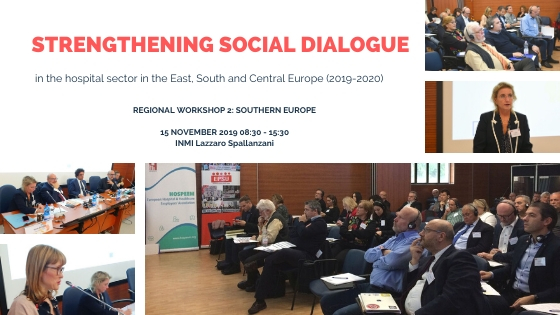 The event is organised with the support of ARAN in collaboration with FIASO and INMI.
The event is organised with the support of ARAN in collaboration with FIASO and INMI.
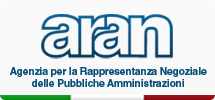
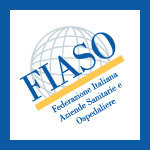

EPSU has also published an article on this topic.
***Back to main project page***
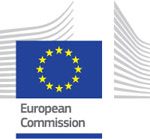
This project has received financial support from the European Union
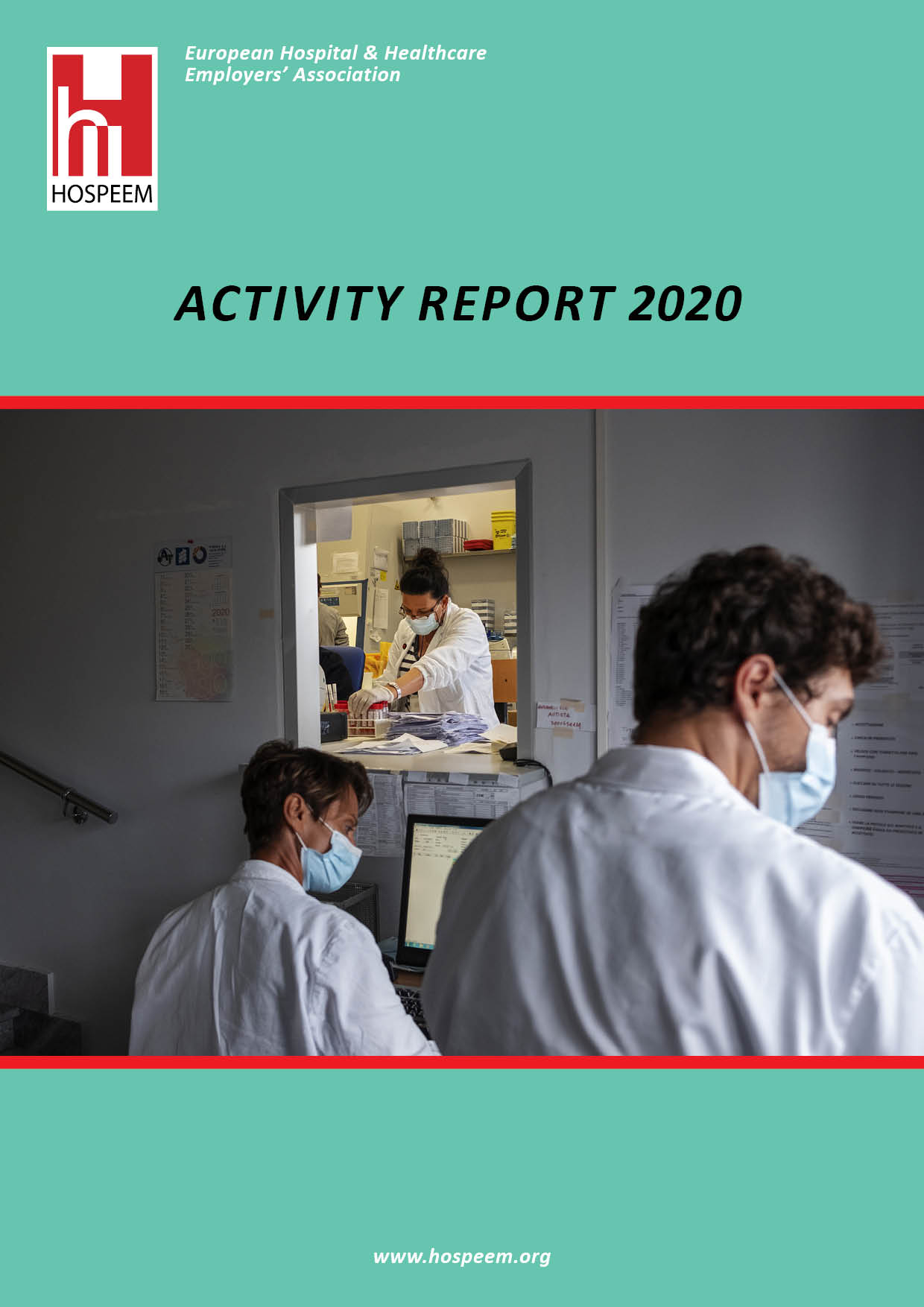 2020 has been an eventful year ensuring that the views of hospital and healthcare employers are being heard at the highest level. The HOSPEEM Activity Report 2020 is published and presents the main activities carried out during the year (page 3,4,5) as well as relevant information on the structure and membership of HOSPEEM.
2020 has been an eventful year ensuring that the views of hospital and healthcare employers are being heard at the highest level. The HOSPEEM Activity Report 2020 is published and presents the main activities carried out during the year (page 3,4,5) as well as relevant information on the structure and membership of HOSPEEM.
 In this document you can find the highlights of the work of the HOSPEEM-EPSU Sectoral Social Dialogue Committee for the Hospital and Healthcare Sector. In 2020 the Sectoral Social Dialogue Committee for the Hospital and Healthcare Sector
In this document you can find the highlights of the work of the HOSPEEM-EPSU Sectoral Social Dialogue Committee for the Hospital and Healthcare Sector. In 2020 the Sectoral Social Dialogue Committee for the Hospital and Healthcare Sector 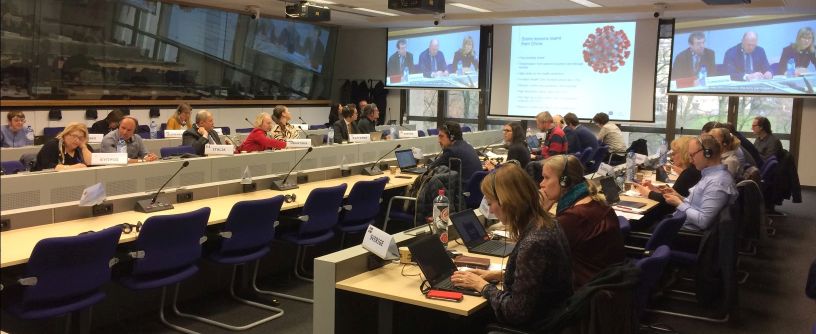
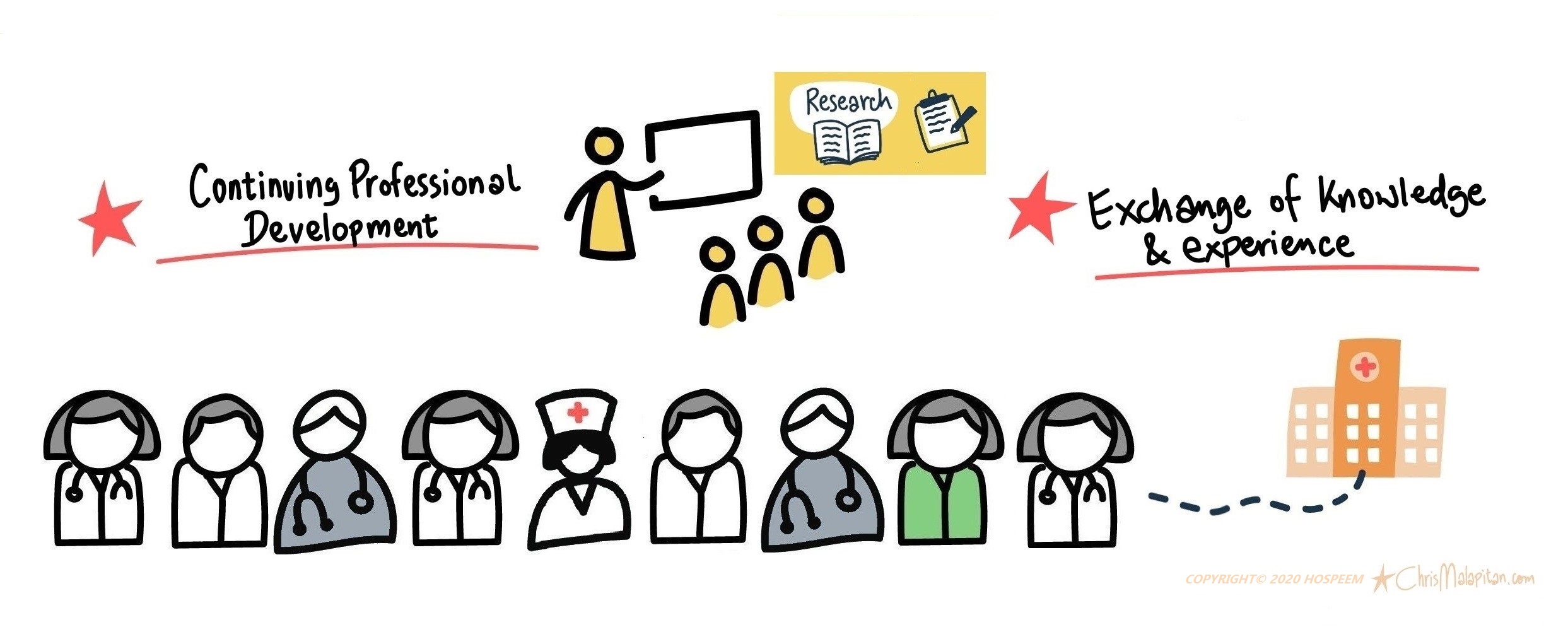

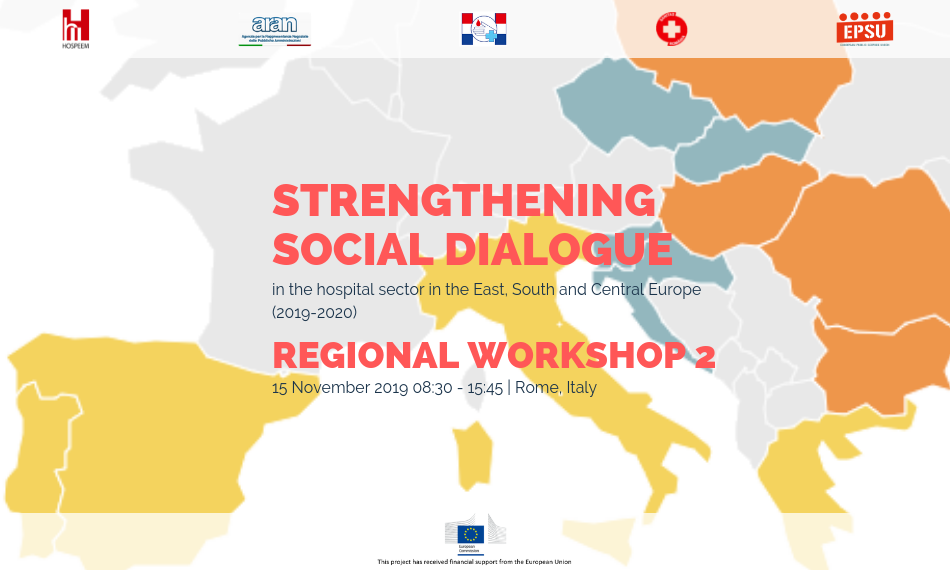
 The event is organised with the support of
The event is organised with the support of 



Recent Comments